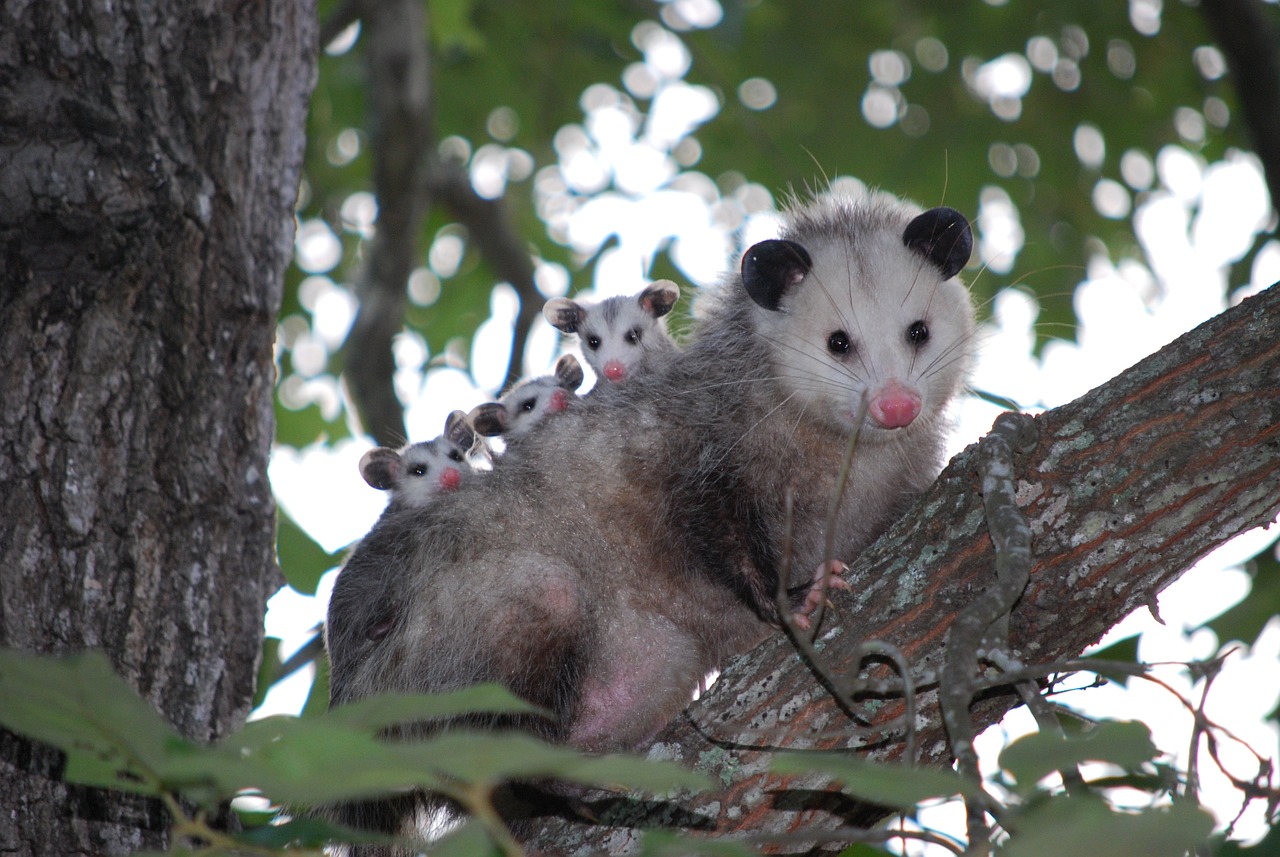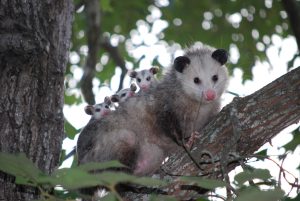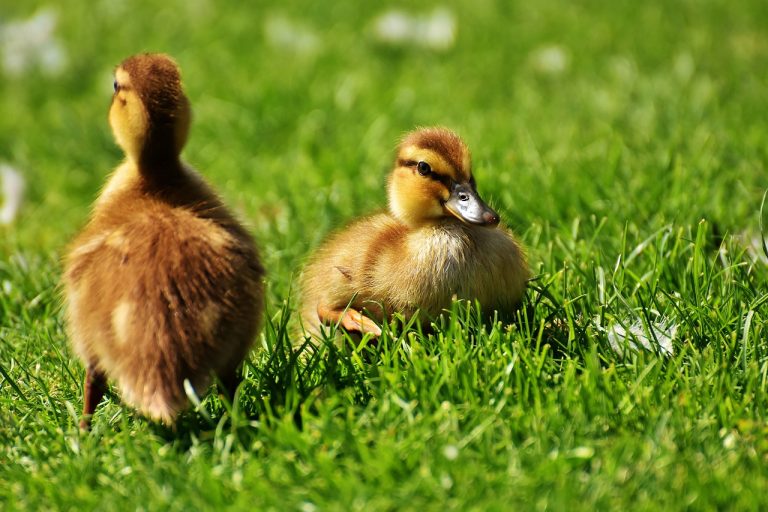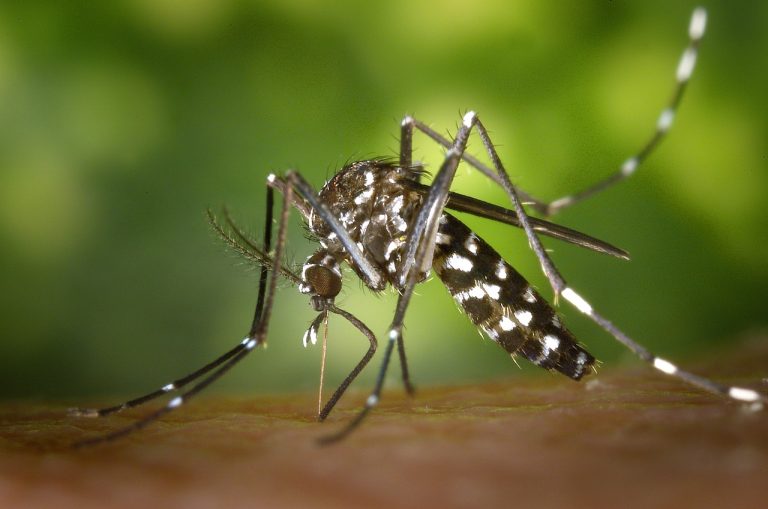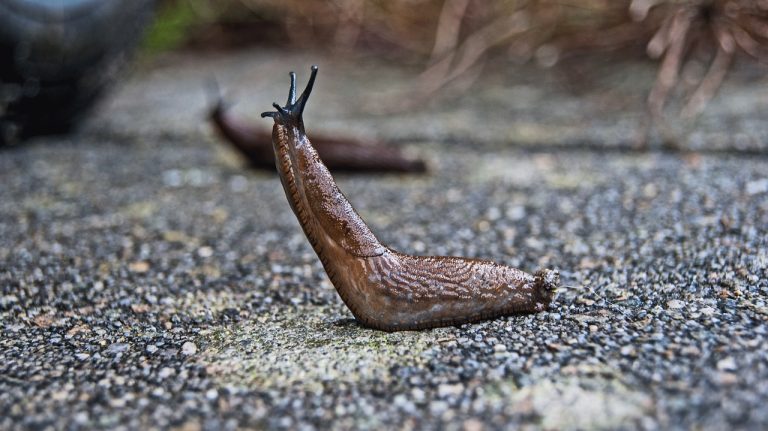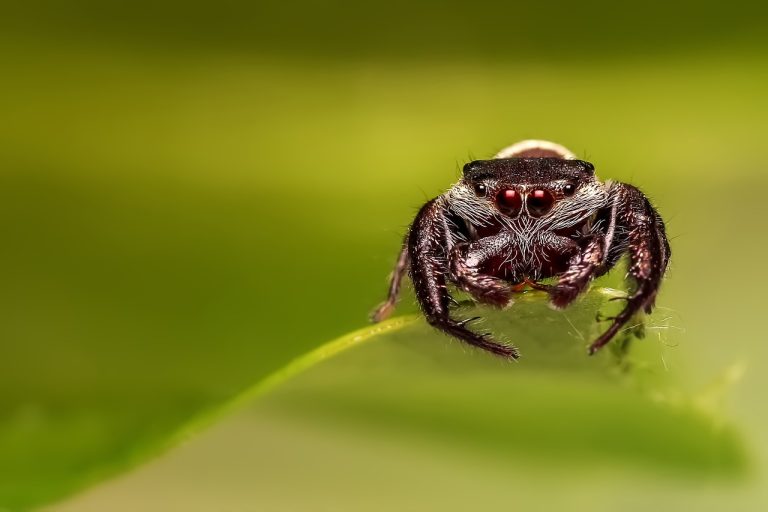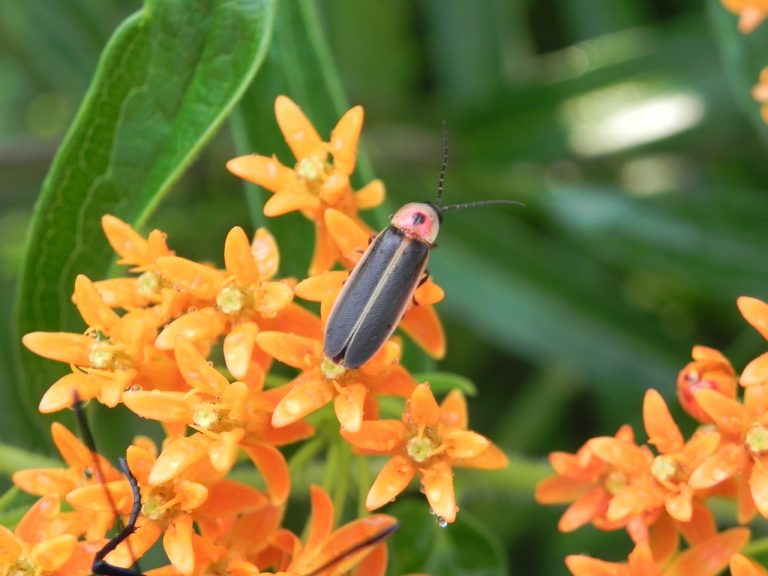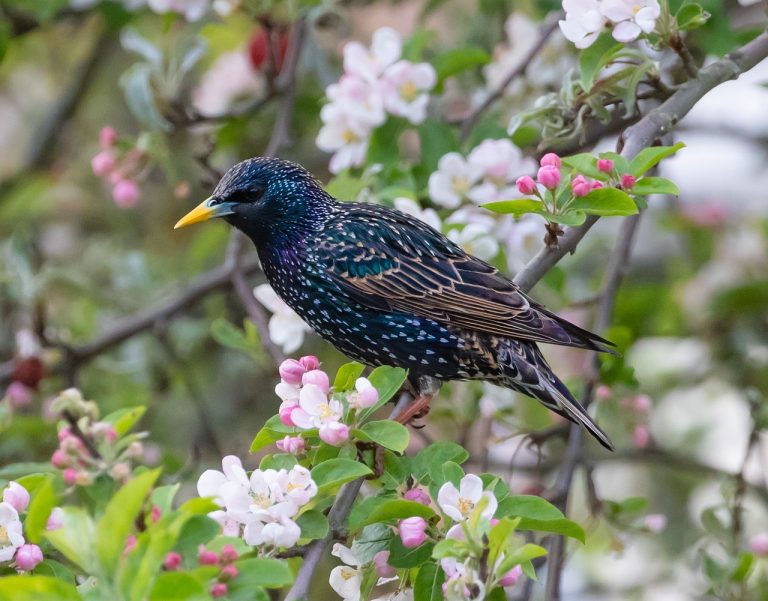Do Baby Possums Play Dead (4 Things You Should Know)
“In the curious world of nature’s oddities, there’s a little creature that has mastered the art of survival through deception. Imagine a tiny, wide-eyed baby possum, seemingly innocent and vulnerable, but possessing a remarkable secret weapon in its arsenal – the ability to play dead. Yes, you heard it right! These pint-sized marsupials have a trick up their furry sleeves that will leave you both amazed and bewildered. So, join us on a journey into the intriguing realm of baby possums and discover the captivating truth behind their astonishing talent for playing dead.”
Do Baby Possums Play Dead?
Baby possums often exhibit a fascinating survival strategy: playing dead. This behavior, also known as “playing possum,” is a unique defense mechanism that these marsupials employ when they feel threatened.
When confronted by a potential predator, such as a larger animal or human, baby possums may go limp, drool, and emit a foul-smelling odor that mimics the scent of a decaying animal. This act, often described as “playing dead,” is an instinctive response designed to deceive and discourage predators. While it may seem unusual, this remarkable adaptation helps baby possums evade danger and increase their chances of survival in the wild.
UNDERSTANDING POSSUMS’ “PLAYING DEAD” BEHAVIOR
You are correct in your understanding of possums’ “playing dead” behavior, which is often referred to as “tonic immobility.” This behavior is indeed a survival strategy rather than a form of playfulness. Here’s a bit more information on this phenomenon:
DEFENSE MECHANISM:
Tonic immobility is a response that occurs when a possum perceives a significant threat or feels cornered. When confronted by a predator or danger, the possum may enter a state of immobility, where it becomes limp and unresponsive. This behavior is an instinctual survival strategy designed to confuse predators.
FEIGNING DEATH:
During tonic immobility, the possum may appear lifeless, with its body limp and its mouth open. It can even emit a foul-smelling odor from its anal glands, further deterring predators. This feigned death state can last from a few minutes to several hours.
PREDATOR CONFUSION:
The purpose of this behavior is to confuse predators. Some predators are more inclined to eat prey that is actively resisting, so when the possum appears lifeless, the predator may lose interest or become less motivated to attack. It’s a way for the possum to “play dead” to avoid being seen as a threat.
AUTONOMIC RESPONSE:
Tonic immobility is an autonomic response, meaning it is not under the possum’s conscious control. It is triggered by stress or fear, and the possum will remain immobile until it feels safe enough to move again.
AGE AND DEVELOPMENT:
While this behavior is commonly observed in both adult and juvenile possums, it may be more pronounced in younger individuals. Baby possums are more vulnerable, and their limited mobility makes them more reliant on this strategy for survival.
THE MECHANICS OF TONIC IMMOBILITY
Tonic immobility, also known as “playing possum,” is a fascinating defensive behavior observed in certain animals, particularly opossums, as you mentioned. This behavior is triggered when the animal perceives a significant threat or feels cornered by a predator. It’s a last-resort survival strategy that can be quite effective in deterring predators.
Here’s a breakdown of the mechanics of tonic immobility:
PERCEPTION OF THREAT:
Tonic immobility is typically triggered when the opossum perceives a severe threat, such as a predator like a fox, raccoon, or owl. This perception of danger can be based on visual, auditory, or olfactory cues from the predator.
PARALYSIS:
When the opossum senses this threat, it can enter a state of extreme fear and stress. This intense stress response can result in the release of certain neurochemicals in the brain that induce paralysis. Essentially, the opossum’s body goes into a state of “freeze.”
BEHAVIORAL RESPONSES:
While in this state of tonic immobility, the opossum may exhibit various behaviors to further convince the predator that it is dead or not worth pursuing. These behaviors can include:
FLOPPING OVER:
The opossum may go limp and collapse on its side, appearing lifeless.
DROOLING:
Some opossums may release drool or foam from their mouths, which can make them seem unappealing to predators.
FOUL ODOR:
Opossums may emit a foul-smelling odor from their anal glands, adding to the illusion of being unpalatable or diseased.
COMPLETE STILLNESS:
Perhaps the most critical aspect of tonic immobility is that the opossum remains completely still during this state. It doesn’t react to external stimuli, even if prodded or touched by a predator.
DURATION:
Tonic immobility can last for varying durations, typically ranging from several minutes to up to an hour. The exact duration may depend on the individual opossum, the level of perceived threat, and other factors.
RECOVERY:
Once the perceived threat has passed or diminished, the opossum will gradually recover from tonic immobility. It can take some time for the opossum to regain full mobility and return to its normal behavior.
WHY DO BABY POSSUMS “PLAY DEAD”?
It’s important to note that the behavior of “playing dead” is not a conscious decision made by possums but rather an instinctual response to stress or danger. When a possum plays dead, it goes into a state of tonic immobility, which is an involuntary physiological response. This response can also involve other behaviors such as drooling, foaming at the mouth, and releasing a foul-smelling odor, further convincing potential predators that the possum is not a suitable meal.
While this behavior is more commonly associated with opossums (North American marsupials) rather than possums (Australian marsupials), the purpose remains the same – to deter predators and increase the chances of survival. Adult opossums also employ this tactic when they perceive a threat. It’s an example of a survival strategy in the animal kingdom that helps these creatures avoid becoming prey.
COMMON MISCONCEPTIONS
There are several common misconceptions about the behavior of possums, particularly when it comes to “playing dead” or exhibiting tonic immobility. It’s important to clarify these points:
INVOLUNTARY RESPONSE:
Tonic immobility, often referred to as “playing dead,” is indeed an involuntary physiological response. It is not a conscious decision made by the possum, nor is it a form of play or pretense, as humans might engage in during play.
NO CONSCIOUS CONTROL:
Possums have no conscious control over tonic immobility. It is triggered by stress or fear, and the possum enters this state as a survival mechanism. During tonic immobility, their body goes limp, their heart rate and breathing slow down, and they may excrete a foul-smelling fluid, all of which can deter predators.
VARIABILITY AMONG INDIVIDUALS:
Not all possums, including baby possums, will exhibit tonic immobility. Its occurrence can vary among individuals, and some may be more prone to this response than others. It depends on factors such as genetics and the specific circumstances or level of threat the possum perceives.
Frequently Asked Questions (FAQ) about “Do Baby Possums Play Dead”
Do baby possums play dead like adult possums?
No, baby possums do not typically play dead like adult possums. Playing dead, or “playing possum,” is a defense mechanism that is more commonly associated with adult possums. Baby possums have not fully developed this behavior yet.
At what age do possums start playing dead?
Adult possums usually start exhibiting the “playing dead” behavior when they are around 3 to 4 months old. Before this age, they are less likely to use this defense mechanism.
Why do adult possums play dead?
Adult possums play dead as a defense strategy when they feel threatened. They go limp, excrete a foul-smelling liquid, and remain still, creating the illusion of being dead to deter potential predators.
What do baby possums do when they are threatened?
When baby possums feel threatened, they may hiss, bare their teeth, or make a clicking noise to signal their discomfort. However, their primary defense mechanism is to climb onto their mother’s back and hide in her pouch or seek refuge in a safe location.
Are baby possums capable of playing dead if they are extremely frightened?
While it is rare, baby possums may sometimes exhibit partial signs of playing dead if they are extremely frightened. However, this behavior is not as developed or effective as in adult possums.
Can handling or approaching a baby possum cause them to play dead?
Handling or approaching a baby possum may cause them to feel threatened, but they are unlikely to play dead in response. Instead, they are more likely to display defensive behaviors such as hissing or attempting to escape.
Is it advisable to handle baby possums if you find them in the wild?
It is generally best to avoid handling baby possums you find in the wild. If you believe a baby possum is in distress or abandoned, it is recommended to contact a local wildlife rehabilitation center or animal control for guidance on how to proceed.
What should I do if I come across a baby possum in my yard or garden?
If you come across a baby possum in your yard or garden, observe from a distance to see if the mother returns. If the baby possum appears to be in danger or has been abandoned for an extended period, contact a wildlife expert for advice on how to best help the animal.
Are baby possums in need of special care or diet if they are rescued?
Baby possums may require specialized care and diet if they are rescued. It is crucial to consult with a wildlife rehabilitator or veterinarian experienced with possums to ensure they receive proper care and nutrition.
Are possums protected by wildlife laws?
Possums are protected by wildlife laws in many regions. It is essential to research and understand the specific regulations in your area before attempting to handle or care for them. Unauthorized possession or handling of possums may be illegal in some places.
CONCLUSION
The intriguing behavior of baby possums playing dead is a fascinating aspect of their survival strategy. While it may seem like a peculiar and perhaps even unsettling phenomenon, it serves as a remarkable adaptation that helps these young marsupials evade potential threats in the wild. By mimicking the appearance of a lifeless animal, they effectively deter predators and increase their chances of survival.
Understanding this behavior sheds light on the incredible diversity of survival mechanisms that exist in the animal kingdom and highlights the remarkable ways in which species have evolved to thrive in their respective environments. So, the next time you encounter a baby possum playing dead, remember that it’s not just a quirky act—it’s a vital survival skill that has allowed them to persist in the face of adversity for millions of years.

